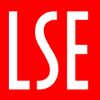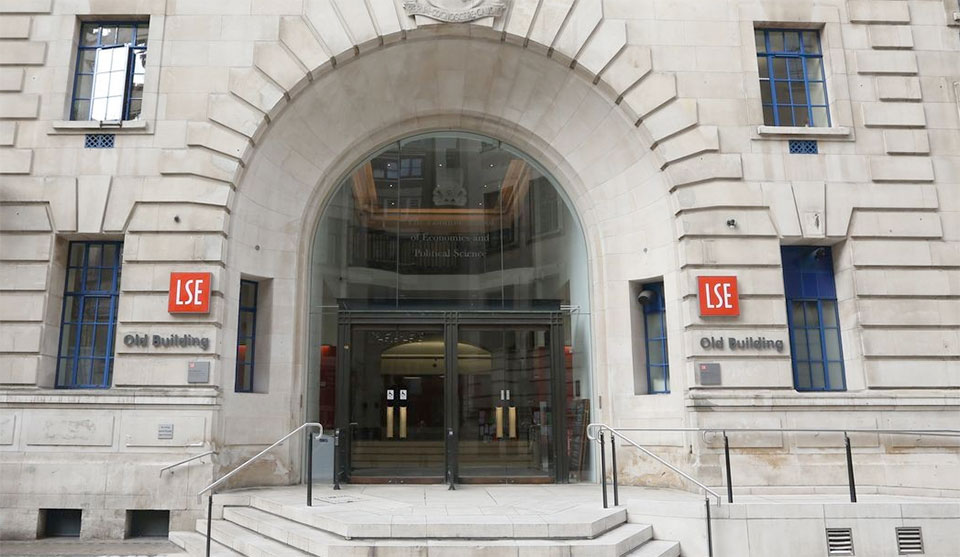Houghton Street, London, WC2A 2AE, United Kingdom
Career Counselling

The London School of Economics and Political Science (LSE) is a leading social sciences University located in central London. Established in 1895, its students and alumni work to shape the world’s future.
Academic and research excellence are cornerstones of the LSE way. In the QS subject rankings for 2022, it was ranked third in the world for management and social science. All academic activities are carried out through 29 Departments and Institutes, and 19 Research Centres. It has partnerships with seven renowned universities globally, from Berkeley ...
| Establishment year | 1895 |
| Total Students | 13,669 (full-time and part-time) |
| International Students | 8,972 |
| QS World University Rankings 2024 | 45 |
| Campus Size | N/A |
| Total Number of Campuses | 1 |
| University Website | https://www.lse.ac.uk/ |
| No. of Schools and Divisions | 29 (Departments and Institutes) |
| Nobel Prize Winner Alumni | 18 (alumni or staff members) |
| No. of Education Programs | 42 (Undergraduate), 194 (Postgraduate) |
| Student to Faculty ratio | 8:1 |
The London School of Economics has 29 highly specialised departments, in keeping with its reputation as an global academic and research powerhouse in the social sciences. These departments and institutes provide undergraduate and postgraduate (taught and research) courses.
The brightest young people in the world apply to the academic and research programmes at LSE, and there is high competition for each seat. For example, in 2021, the undergraduate acceptance rate was 6.5%, out of the 26,000 students who applied, and the PG acceptance rate was 15.6%.
For prospective undergraduates, the most important criterion of eligibility is the performance in A-Level or IBDP examinations or equivalent. Every UG course webpage includes the standard level of academic grades or marks that usually satisfy entry requirements, though these are not guaranteed to apply during a competitive year. Certain courses, especially in quantitative economics, require candidates to pass an additional test in Mathematics. Finally, if an applicant cannot prove significant past exposure to English, he / she might need to take a qualifying test of proficiency in the language.
Postgraduate admission requirements differ widely by programme: on average, international applicants will need to have scored above 70% in their final year, or a grade point average of 3.5 or better, out of 4. Individual course webpages list minimum entry requirements, and the level of English proficiency required is similar to that for the UG courses.
The undergraduate application process to LSE is through the Universities and Colleges Admissions Service (UCAS) online portal. The window opens in September of the year before the course starts, and the deadline is on January 25 of the following year. Applicants need to ensure that they enter accurate personal, general, and academic history information. In addition, each candidate needs to submit one reference, and the personal statement is of great importance in differentiating each application.
Certain applicants from non-traditional backgrounds may be asked in March (of the year in which they wish to join) to sit through the Undergraduate Admissions Assessment process; this ensures that they can compete on a level playing field.
There is less uniformity in the graduate application process. Candidates can apply at any time during the cycle; an application can only be submitted after two reference letters have been uploaded and all the necessary documents have been attached. After the application form is filled out and the appropriate fee has been paid, candidates can track the status of their application and the expected time for a decision; this varies according to the course and department.
The London School of Economics occupies an apex position among social science schools worldwide, and the fees reflect this fact. For both UG and PG students, the average fee for international students is a little higher than the average fee at other top universities.
Undergraduate students from the UK pay tuition fees of £9,250 per annum, whereas overseas candidates pay an average of £25,272 annually; the amount payable for any course does not deviate more than 10% from this sum.
Postgraduate fees are, on average, 30% higher than UG fees. In many courses, UK and overseas students pay the same tuition fees: which range from £25,920 at the lower end, to £42,384 per year for the MSc in Finance and Private Equity.
Both UG and PG students should also budget for living costs: LSE recommends setting aside up to £1,400 for accommodation, travel, food, and personal expenses. This amounts to an average of £12,600 per year over and above tuition fees.

LSE’s campus is located in Central London, and offers every facility to its students, from an extensive library to sports facilities and the academic buildings, all linked by pedestrian streets, meaning that it is an oasis of student activity in the middle of one of the busiest cities on Earth. Within a short walk from the campus are the Houses of Parliament, the financial district of the City of London, and the cultural hub of Covent Garden. The Saw Swee Hock Student Centre serves as the nexus of all student activity at LSE and has cafes, a pub, a nightclub, student welfare centres, and a roof terrace.
Sports clubs at LSE are highly competitive in the London Universities Sports Leagues (LUSL), with 30 teams from the school testing their skill against the best in the city. Outdoor sports grounds (football, rugby, and netball) are located away from the main campus, in Berrylands. For those students who want to take their passion for sporting excellence to the next level, locally or nationally, the Sport Performance Programme helps elite athletes on campus with additional coaching and course management along with sports commitments.

Even those members of the LSE community who do not play a sport are encouraged to join the two gyms on campus. Students, staff members, and alumni can avail themselves of a membership, and innovative measures like women’s-only hours and app-driven engagement ensure that some of the busiest students in the UK do not neglect their physical health. The student community is also very active in organising social events - from the Three Tuns student bar to the De-Stress Fest to Wind Down Wednesdays, the campus is always buzzing with activity, inside and outside the classrooms.
The London School of Economics has some of the most impressive placement figures (for both UG and PG graduates) in the world: the median salary is £35,000, and 92.8% of LSE graduates joined a job or further study within 15 months of completing a degree in 2019. The career paths that routinely see the highest salaries paid out are Law, Management Consulting, and Private Equity. Alumni of the School also occupy powerful positions in Government across the world, and go on to achieve great things in research, with 18 Nobel Laureates among the alumni - both student and staff.
Numerically, the top three career paths chosen by LSE graduates are Financial & Professional Services, Education, Teaching & Research, and Consultancy.
LSE occupies the higher end of the fee spectrum among universities in the UK, but there are multiple scholarship and bursary options, in addition to education loans.
Undergraduate students from the UK have multiple scholarship options that waive part or all of the tuition fee. The application process is online, and all materials must be submitted by June 1 of the year in which the course starts. Overseas students joining LSE must submit their applications for scholarships by April 28. This process is outlined clearly on the relevant LSE webpage, and starts after an applicant receives an admission offer. The UG scholarship application form needs to be filled out, followed by the submission of an academic letter of reference and supporting documents to establish merit and need. There are currently 11 different scholarships for international undergraduate students at LSE, which vary in amount from £10,000 to full tuition fee coverage to full payment of tuition fees and living costs.
Postgraduate students apply for financial support in a manner similar to UGs: these are offered both by the School and by external organisations e.g. the British Council. Extensive research should be done in advance of filling out the Graduate Financial Support Application; the website is updated with scholarship announcements, requirements, and due dates in November each year.
